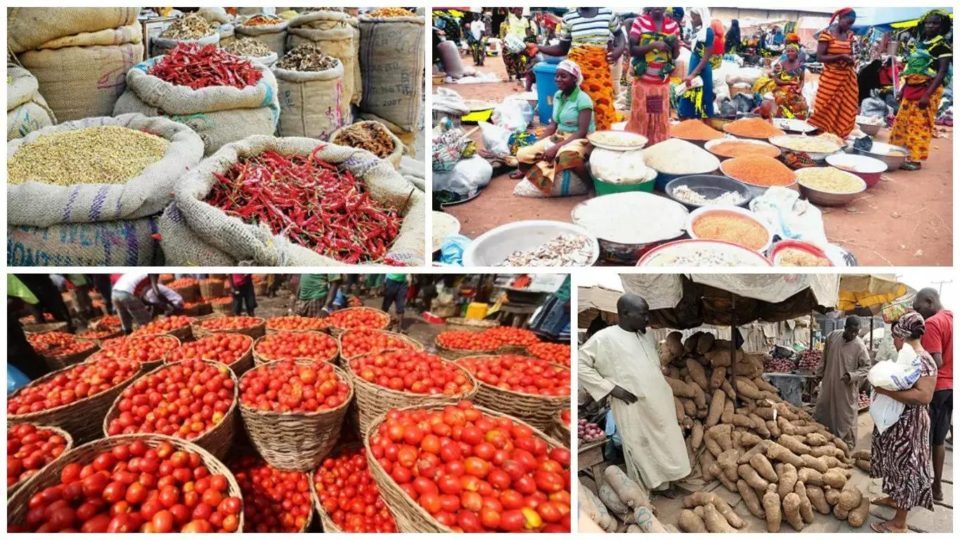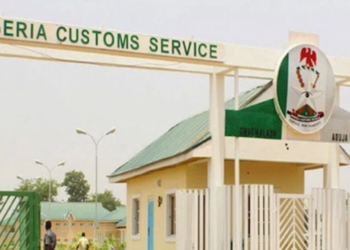Nigeria’s inflation rate which has dropped for three consecutive months in 2019, is expected to moderate around the double-digit for the next one year.
This is revealed in the latest Central Bank of Nigeria (CBN) monthly business expectation survey for the month of April.
According to the CBN survey, even though inflation is declining, the level is still expected to hover around double digit in the next one year.
The Business Expectations Survey for the month of April 2019 was conducted with a sample size of 1050 businesses comprising small, medium and large corporations covering both import- and export-oriented businesses nationwide.
Also, the survey report shows firms expected borrowing interest rates to rise in the next six months, while the exchange rate is expected to appreciate in coming months.
Business Outlook in the economy: In the survey, businesses expressed optimism in the overall confidence index (CI) of the Nigerian economy in the month of April 2019.
The businesses outlook for May 2019 showed greater confidence in the macroeconomy
According to the survey report, the optimism in the macroeconomy in April was driven by the opinion of respondents from services, industrial, wholesale/retail trade, and construction sectors.
However, the major drivers of the optimism for next month were services, industrial, wholesale/retail trade and construction.
The expectations of businesses also conform with the latest manufacturing Purchasing Managers’ Index (PMI) which shows that Nigeria’s manufacturing sector expanded for the 25th consecutive months.
Access to finance and employment outlook remains positive: Businesses remain optimistic in their outlook on financial conditions Outlook for April 2019. Similarly, on the volume of total order and business activity in April 2019 remained positive. The average capacity utilization as the indices stood at 22.4 index point.
On the other hand, the employment outlook index by sector showed that the industrial sector indicates the highest prospects for creating jobs followed by wholesale/retail trade sector, construction sector and services.
Just as previously reported, Nigeria’s manufacturing sector continues to build momentum to reducing the high unemployment rate in Nigeria.
[Also Read: Latest PMI shows Nigeria’s manufacturing sector expands yet again in April]
Similarly, analysis further shows that expansion plans by sector in the next month showed that the services sector indicates a higher disposition to expansion, followed by the construction sector and the industrial sector.
However, the wholesale/retail trade sector indicated no intention of expansion in the next 12 months.
Insufficient Power supply still a bane: Just as reported in the previous month, the April survey showed insufficient power supply remains the leading factor hindering businesses in Nigeria. The surveyed firms identified insufficient power supply, high-interest rate, unfavourable economic climate, financial problems unclear economic laws, unfavourable political climate, insufficient demand and access to credit as the major factors constraining business activity in April.
Inflation expectations in Nigeria to moderate around 11 percent: Businesses expect inflation to maintain double digits in the next one year and hover around 11.43 and 11.37 percent respectively. However, firms are satisfied with the management of inflation by the Government with a net satisfaction index of 4.7 percent in April 2019.
Hence, businesses owners were optimistic of better economic conditions as their
expectations on the growth of the economy rose steadily in the short run.
Some implications of double-digit inflation: The consumer price index, which measures inflation has dropped for the third consecutive month to 11.25% in March 2019, according to the monthly inflation report released by the National Bureau of Statistics (NBS).
Despite falling inflation, Nairametrics reported that Nigeria’s Consumer Price Index increased by more than 207% between 2009 and 2019. Nigeria has recorded a double-digit inflation rate far more than it has with single digit inflation eroding much of the purchasing power available to Nigerians.
In fact, Nigeria’s minimum wage of N30,000 today was probably worth about N9,000 in March 2009. Nigeria’s last minimum wage of N18,000 signed into law in 2011. The equivalent of the latest N30,000 minimum wage was about N21,000 in March 2011. Thus the N18,000 minimum wage of 2011 is the equivalent of N25, 632 today.






















